Life
Sign up for our newsletter
We summarize the week's scientific breakthroughs every Thursday.
-
 Animals
AnimalsA diet of corn turns wild hamsters into cannibals
Female European hamsters fed a diet of corn eat their young — alive. They may be suffering from something similar to the human disease pellagra.
-
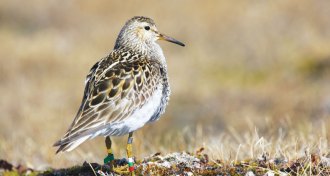 Animals
AnimalsPectoral sandpipers go the distance, and then some
Even after a long migration, male pectoral sandpipers keep flying, adding 3,000 extra kilometers on quest for mates.
-
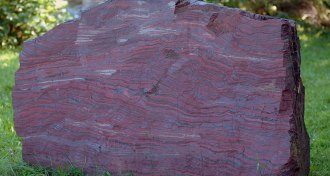 Earth
EarthOxygen flooded Earth’s atmosphere earlier than thought
The Great Oxidation Event that enabled the eventual evolution of complex life began 100 million years earlier than once thought, new dating of South African rock suggests.
-
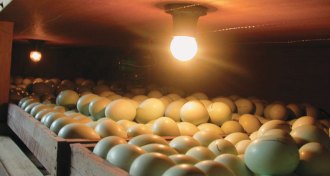 Animals
AnimalsFor calmer chickens, bathe eggs in light
Shining light on incubating eggs leads to calmer adult chickens, a study suggests.
-
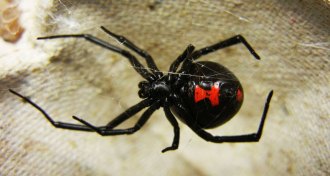 Animals
Animals‘Cannibalism’ chronicles grisly science of eating your own
In "Cannibalism", a zoologist explores a grisly topic that scientists have only recently begun to study seriously.
By Sid Perkins -
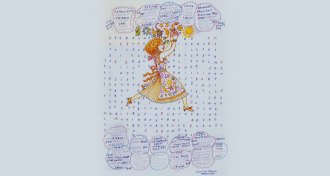 Neuroscience
NeuroscienceArtist’s amnesia could help unlock mysteries of memory
In "The Perpetual Now", journalist Michael Lemonick looks at what an artist’s memory loss can teach neuroscientists about the brain.
By Diana Steele -
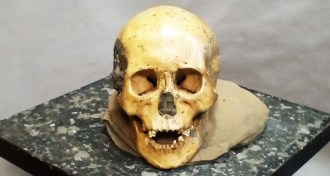 Anthropology
AnthropologyDNA points to millennia of stability in East Asian hunter-fisher population
Ancient hunter-gatherers in East Asia are remarkably similar, genetically, to modern people living in the area. Unlike what happened in Western Europe, this region might not have seen waves of farmers take over.
By Meghan Rosen -
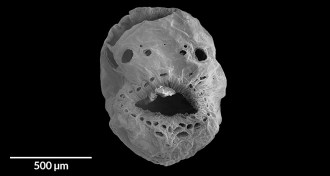 Paleontology
PaleontologyPinhead-sized sea creature was a bag with a mouth
Dozens of tiny fossils discovered in 540-million-year-old limestone represent the earliest known deuterostomes, a diverse group of animals that includes humans and sea cucumbers.
By Meghan Rosen -
 Genetics
GeneticsCRISPR used in cows to help fight tuberculosis
Chinese researchers used a CRISPR/Cas 9 gene editor to make cows more resistant to tuberculosis.
-
 Genetics
GeneticsCRISPR used in cows to help fight tuberculosis
Chinese researchers used a CRISPR/Cas 9 gene editor to make cows more resistant to tuberculosis.
-
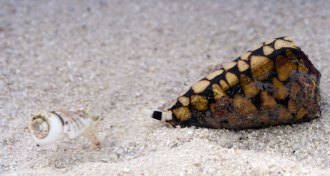 Oceans
OceansCone snails wander in circles, lose focus with boosted CO2
Deadly cone snails wander in circles and become less capable hunters when exposed to higher levels of carbon dioxide in seawater.
-
 Oceans
OceansCone snails wander in circles, lose focus with boosted CO2
Deadly cone snails wander in circles and become less capable hunters when exposed to higher levels of carbon dioxide in seawater.